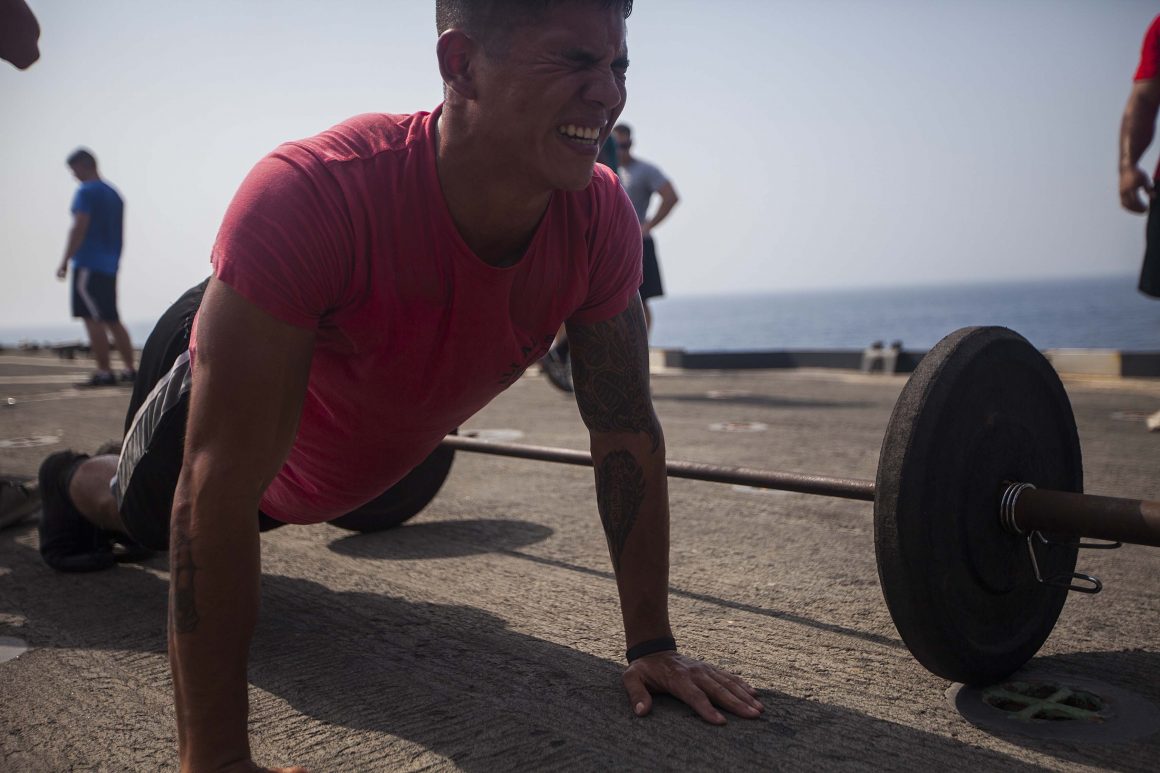
Don’t let sickness stop your workout
By Christie Melhorn, October 25 2016 —
It’s that time of the semester when an orchestra of sniffles, nose blowing and coughs fills every classroom. With a million things on your plate, it’s easy to get sick as a student. However, you can recover from that cold faster and avoid getting sick as often by staying active — while still respecting your body’s limits.
If you’re feeling off, the first thing to do before hopping on the treadmill or settling into the squat rack is check whether your symptoms dwell above or below the neck. Vice-chair of the Cleveland Clinic’s department of preventive medicine Raul Seballous told Men’s Fitness that exercising with a common cold should be fine as long as you listen to your body and don’t overdo it.
However, if you’re experiencing symptoms below the neck, such as chest congestion, achy muscles or a queasy stomach, skip the high-intensity workout you had planned and take the day to rest and hydrate your body.
Sometimes even a common cold can feel like the plague if we’re bogged down with stress. Getting out of bed may seem like a monumental effort, let alone hitting the gym. If you’re scared of making yourself worse by exercising, ABC News’ chief health and medical editor Richard Besser would disagree. In an interview with
Health.com, Besser claims that gentle to moderate exercise can help you feel better. Walking and jogging are particularly helpful when you’re plugged up because these activities regulate your breathing and open up airways.
Still not convinced? A study led by Bell State University associate professor of physical education Thomas G. Weider found that moderate exercise does not worsen cold symptoms. His study involved 50 student volunteers with moderately fit lifestyles who were split into two sample groups — active and inactive. Each volunteer was instilled with common cold bacteria and monitored over 10 days. The active group ran, biked or used a stepper for about 40 minutes each day at 70 percent of their maximum ability. Compared to the non-exercising group, their symptoms did not differ in intensity or drag the cold out longer.
If 70 percent of your maximum ability sounds like too much, Seballous recommends cutting your intensity level and workout duration by 50 percent. Instead of cranking out an intense 30-minute high-intensity session, go for a 15-minute walk. This could easily be fulfilled by doing a loop from TFDL to the Earth Sciences building on campus through the +15s.
If you’re committed to your weightlifting routine, try performing half the reps you normally do and minimizing the weight. During your routine you may be surprised at how much more you can do than expected. However, it is important to feel things out carefully. Seballous recommends that heavy lifting and strenuous cardio should be avoided if you are under the weather.
Of course, it is important to note that every body is different. We are all under different physical and emotional pressures that can contribute to a cold or flu and how our symptoms manifest. At the slightest wave of nausea or impulse to vomit, Besser recommends reeling things in. The most common and possibly most difficult advice to take when you’re sick, especially as a student, is “listen to your body”. When we have multiple exams, papers and shifts at part-time jobs all while being bombarded by texts and emails, we can easily and unintentionally tune out what our bodies are asking us to do.
So whether your back is screaming at you to get up and move after studying for three solid hours or you are fighting to keep upright at your table, take what your body is saying seriously and act on it.
